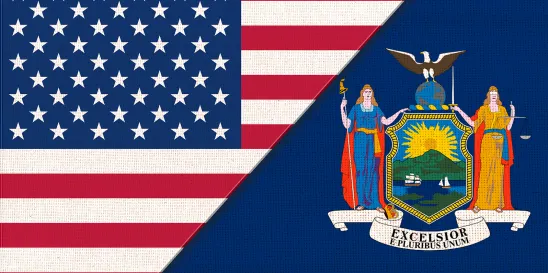Two recent decisions from the United States District Court for the Southern District of New York highlight the split among circuits on whether state insurance laws that prohibit arbitration of insurance and reinsurance disputes are preempted by the New York Convention on the Recognition and Enforcement of Foreign Arbitral Awards (“New York Convention”), which governs international arbitrations and favors same in various industries, including insurance and reinsurance. These cases, Veterans Blvd. Plaza, LLC v. Certain Underwriters at Lloyds, London (Veterans) (“Veterans”)1 and Certain Underwriters At Lloyds, London v. Mpire Properties, LLC(“Mpire”)2, involved insurance contracts governed by Louisiana law between foreign insurers and Louisiana property owners. The arbitration provisions at issue in both decisions were prohibited by Louisiana law, but the foreign insurers argued that the New York Convention, a treaty to which the United States is a signatory, preempts state law and the McCarran Ferguson Act (MFA), a federal law, which leaves the regulation of insurance to the states. The relevant language from the MFA provides:
“No Act of Congress shall be construed to invalidate, impair, or supersede any law enacted by any State for the purpose of regulating the business of insurance . . . unless such Act specifically relates to the business of insurance.”
15 USC § 1012(b)
The policyholders argued that the New York Convention is not self-executing and therefore requires a separate “Act of Congress” to preempt the MFA and state insurance laws. The district courts in both Veterans and Mpire rejected the insurers’ motions to compel arbitration.
The Mpire Court Follows Second Circuit Precedent
The Veterans and Mpire courts relied on Stephens v. American International Insurance Co. (“Stephens”)3, a 1995 decision by the Second Circuit holding that the Federal Arbitration Act (FAA) does not preempt the MFA. The central dispute in Stephens was between a domestic reinsurer from Kentucky and domestic cedents who moved to compel arbitration of their setoff claims under the FAA. However, the Second Circuit also touched upon arguments from foreign reinsurers’ that the New York Convention required arbitration of their claims, even if the FAA was not preempted by Kentucky law. The Second Circuit rejected these arguments and stated that the New York Convention is not self-executing and relies upon an “Act of Congress” for its implementation, and, therefore, the MFA is not preempted. This statement from Stephens rendered the analysis in Veterans and Mpire straightforward, leading both courts to apply Louisiana insurance law without regard for the effect of the New York Convention.
While the Veterans court acknowledged that the Fifth Circuit held in Safety National4 that the New York Convention preempts the MFA, the Veterans court concluded it was bound to follow Stephens. The Safety National decision is notable because the Fifth Circuit concluded that Congress did not intend an “Act of Congress” in the MFA to apply to international treaties, regardless of whether they were self-executing or required implementing legislation. The Fifth Circuit noted that, even if a treaty is implemented by Congress, it does not cease to be a treaty (i.e., an international agreement negotiated by the Executive Branch and ratified by the Senate). And, because the New York Convention is an international treaty, the Fifth Circuit reasoned, it is not an “Act of Congress,” regardless of whether it is self-executing or not. And, under the Supremacy Clause of the Constitution, the New York Convention preempts state law.
Surprisingly, the Veterans court did not cite the 2021 Ninth Circuit decision in CLMS, which we addressed in a previous piece. The Ninth Circuit also concluded that the New York Convention supersedes state law barring arbitrations in insurance and reinsurance contracts but did so on the basis of its finding that the New York Convention was “self-executing” and itself required enforcement of the parties’ arbitration agreement, not the Federal Arbitration Act, the Convention’s implementing legislation. The CLMS court disagreed with the Second Circuit’s conclusion in Stephens, in part, because the Stephens court did not undertake an analysis of the New York Convention’s text, drafting, and negotiations history, or the view of the U.S. Solicitor General, who filed an amicus brief in connection with Safety National plaintiffs’ petition for certiorari.
Conclusion
Several states have laws under which arbitration clauses are prohibited in the context of insurance and reinsurance contracts.5 The Fifth and Ninth Circuits have now held that the MFA does not preempt the New York Convention, whereas the Second Circuit reached the opposite conclusion in Stephens, leading two New York federal district courts (e.g., Mpire and Veterans) to deny motions to compel arbitration in the insurance context despite the New York Convention. Given that New York is one of the biggest insurance/reinsurance centers in the world and that many reinsurance contracts, especially between foreign and domestic entities, have arbitration clauses, the issue of whether the New York Convention is preempted by the MFA is of central importance to the industry — and may be ripe for Supreme Court review soon. Parties in the insurance/reinsurance industry should carefully choose governing law and venue provisions to make sure the arbitration provisions in the agreements are enforceable.
1 Certain Underwriters at Lloyds, London v. 3131 Veterans Blvd LLC, 2023 WL 5237514 (S.D.N.Y. Aug. 15, 2023).
2 Certain Underwriters At Lloyds, London v. Mpire Properties, LLC, 2023 WL 6318034 (S.D.N.Y Sept. 28, 2023).
3 Stephens v. Am. Int'l Ins. Co., 66 F.3d 41 (2d Cir. 1995).
4 Safety Nat. Cas. Corp. v. Certain Underwriters At Lloyd's, London, 587 F.3d 714 (5th Cir. 2009).
5 See Brian A. Briz & César Mejía-Dueñas, Which Law Is Supreme? The Interplay Between the New York Convention and the McCarran-Ferguson Act, 74 U. Miami L. Rev. 1124 (2020).





 />i
/>i

